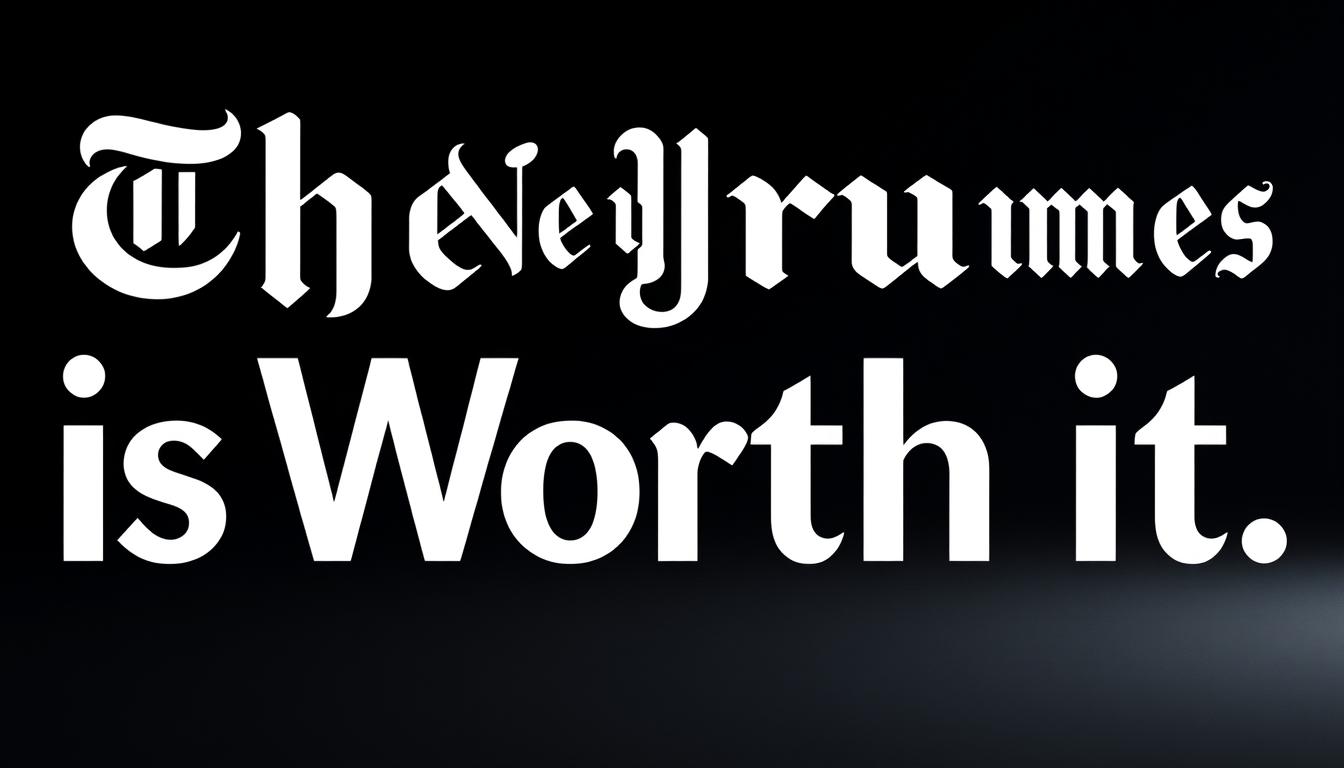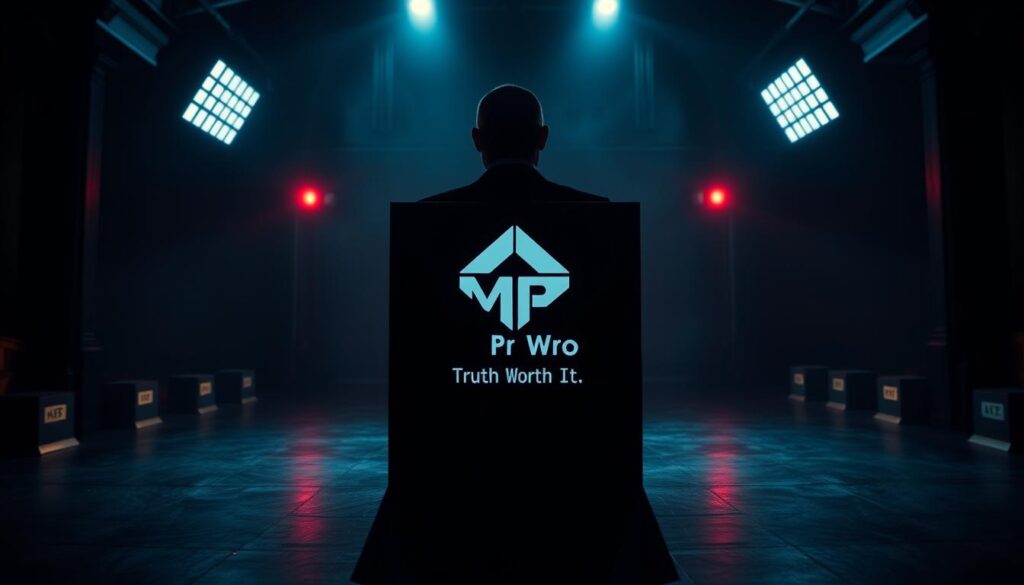
Did you know that The New York Times reaches over 150 million monthly readers? This staggering number highlights the impact of its groundbreaking campaign, The Truth Is Worth It, which has redefined how journalism is perceived in the digital age. Launched during the 2020 Oscars, this campaign not only captivated audiences but also underscored the importance of quality reporting.
The campaign’s creative approach, led by Droga5, features films of varying lengths, from :06 to long-form, each designed to evoke different emotional responses. This multi-format storytelling has been internationally recognized, earning accolades like the Gold Pencil at The One Show. The 1619 Project, a key part of this initiative, examines the legacy of slavery in America, demonstrating how journalism can reshape our understanding of history.
By blending cinematic techniques with rigorous journalism, the campaign positions The New York Times as a relentless pursuer of truth. This approach has not only attracted new subscribers but also challenged misconceptions about the role of journalism in today’s media landscape. The result? A record-breaking 5 million total subscribers, proving that quality journalism is indeed worth it.
Context and Background of the Campaign
In today’s fast-changing media world, the role of quality journalism has become more crucial than ever. The digital age brings new challenges, from misinformation to shifting consumer habits, making it harder for traditional media to adapt and thrive.
Evolving Media Landscape in the Digital Era
The rise of digital platforms has transformed how we consume news. Traditional media outlets are now competing with online sources, social media, and other digital innovations. This shift has created both opportunities and challenges, particularly in maintaining the integrity of news in a crowded and often noisy information space.
Commitment to Quality Journalism
Amid these changes, The New York Times has doubled down on its commitment to rigorous reporting. By maintaining high editorial standards, the publication ensures that its stories are not only accurate but also impactful. This dedication is reflected in the work of journalists like Hannah Beech and Azam Ahmed, who face immense challenges to uncover critical stories, showcasing the bravery and perseverance required in modern journalism.
Through innovative storytelling techniques and a focus on verified information, The New York Times continues to set a high bar for journalism in the digital age. This approach not only upholds the integrity of their reporting but also resonates with audiences seeking trustworthy news sources.
The New York Times’ “The Truth Is Worth It” Campaign
Discover how The New York Times crafted a campaign that redefined modern journalism. The “Truth Is Worth It” initiative, led by the creative agency Droga5, showcases a blend of cinematic storytelling and rigorous reporting.
Creative Strategy and Production Insights
The campaign’s success lies in its innovative approach. By producing films of varying lengths, from short clips to long-form documentaries, the team at Droga5 aimed to evoke a range of emotions. These films highlight qualities like rigor, resolve, and courage, mirroring the mindset of journalists.
Multi-Format Storytelling Approach
The multi-format strategy allows the campaign to reach diverse audiences. Whether through brief, impactful clips or in-depth features, each piece is designed to engage viewers differently. This versatility ensures the message resonates across various platforms and demographics.

| Aspect | Details | Impact |
|---|---|---|
| Creative Strategy | Multi-format storytelling | Engages diverse audiences |
| Production Insights | Cinematic techniques | Enhances emotional connection |
| Typography | Evolving fonts | Mirrors journalistic thought |
By integrating dynamic visuals and evolving typography, the campaign creates a seamless narrative experience. This approach not only captures attention but also reinforces the value of quality journalism. For more insights on effective digital strategies, visit e-commerce SEO practices.
Innovative Storytelling Techniques and Design
Storytelling is at the heart of The New York Times‘ “The Truth Is Worth It” campaign. By blending dynamic visuals with evolving typography, the campaign creates a vivid narrative that mirrors the fluid nature of modern journalism.
Dynamic Visuals and Evolving Typography
The campaign’s design is a masterclass in innovation. Dynamic visuals change over time, reflecting the journey of journalists as they uncover stories. This approach keeps the audience engaged and invested in the narrative. Evolving typography further enhances the storytelling process, mimicking the creative flow of a journalist—from brainstorming ideas to crafting headlines.
Emotional Threads: Rigor, Resolve, and Courage
At the core of the campaign are emotional threads like rigor, resolve, and courage. These themes are woven into every visual and typographical element, creating a powerful connection with the audience. The campaign’s film, featuring a jazz track by Makaya McCraven, adds depth to the storytelling experience, resonating with the highs and lows of life.
| Aspect | Details | Impact |
|---|---|---|
| Dynamic Visuals | Reflect the journalist’s journey | Engages audience emotionally |
| Evolving Typography | Mirrors journalistic process | Enhances narrative flow |
| Jazz Soundtrack | Complements storytelling | Creates emotional resonance |

Impact on Digital Journalism and Audience Engagement
The “Truth Is Worth It” campaign has significantly influenced digital journalism by setting new standards for audience engagement. Through its innovative approach, the initiative has successfully reached viewers across linear TV, streaming platforms, social media, and print, demonstrating the power of multi-platform storytelling.
Engaging Viewers Across Multiple Platforms
One of the campaign’s key strengths is its ability to connect with audiences on various mediums. For instance, a climate change TV ad resonated globally, illustrating how targeted digital strategies can amplify a message’s reach. This cross-platform approach has not only boosted engagement but also encouraged viewers to seek out more in-depth content.
The campaign’s success highlights the importance of interactive storytelling in today’s digital landscape. By incorporating elements that encourage audience participation, journalists can create a more immersive experience, fostering a deeper connection with their viewers.
Looking ahead, the implications of this campaign are profound. It serves as a blueprint for future journalistic projects, showing how quality reporting can thrive in a competitive digital environment. As digital journalism continues to evolve, initiatives like “The Truth Is Worth It” remind us of the enduring value of compelling, well-crafted stories.

For more insights on effective digital strategies, visit our guide on search engine optimization.
Conclusion
The Truth Is Worth It campaign stands as a testament to the enduring power of quality journalism in a digital age. By blending innovative storytelling with meticulous design, the initiative has redefined how modern journalism engages audiences. At its core lies a commitment to truth and rigorous investigation, principles that resonate deeply in today’s information landscape.
The campaign’s success lies in its dynamic visuals and evolving typography, which mirror the journey of journalists uncovering stories. These elements create an immersive narrative experience, drawing viewers into the heart of the story. Moreover, the integration of creative strategy with real-world engagement has set a new benchmark for digital journalism.
As you consider the future of journalism, the Truth Is Worth It campaign serves as a blueprint for effective storytelling. Its innovative approach reminds us that compelling narratives, backed by rigorous reporting, are essential in a world where misinformation is rampant. For more insights on building trust through transparency, visit our credentials guide. This campaign is not just a story—it’s a movement that redefines modern journalism.

 The New York Times’ ‘The Truth Is Worth It’ Campaign: Promoting Quality Journalism in a Digital Era
The New York Times’ ‘The Truth Is Worth It’ Campaign: Promoting Quality Journalism in a Digital Era
0 Comment